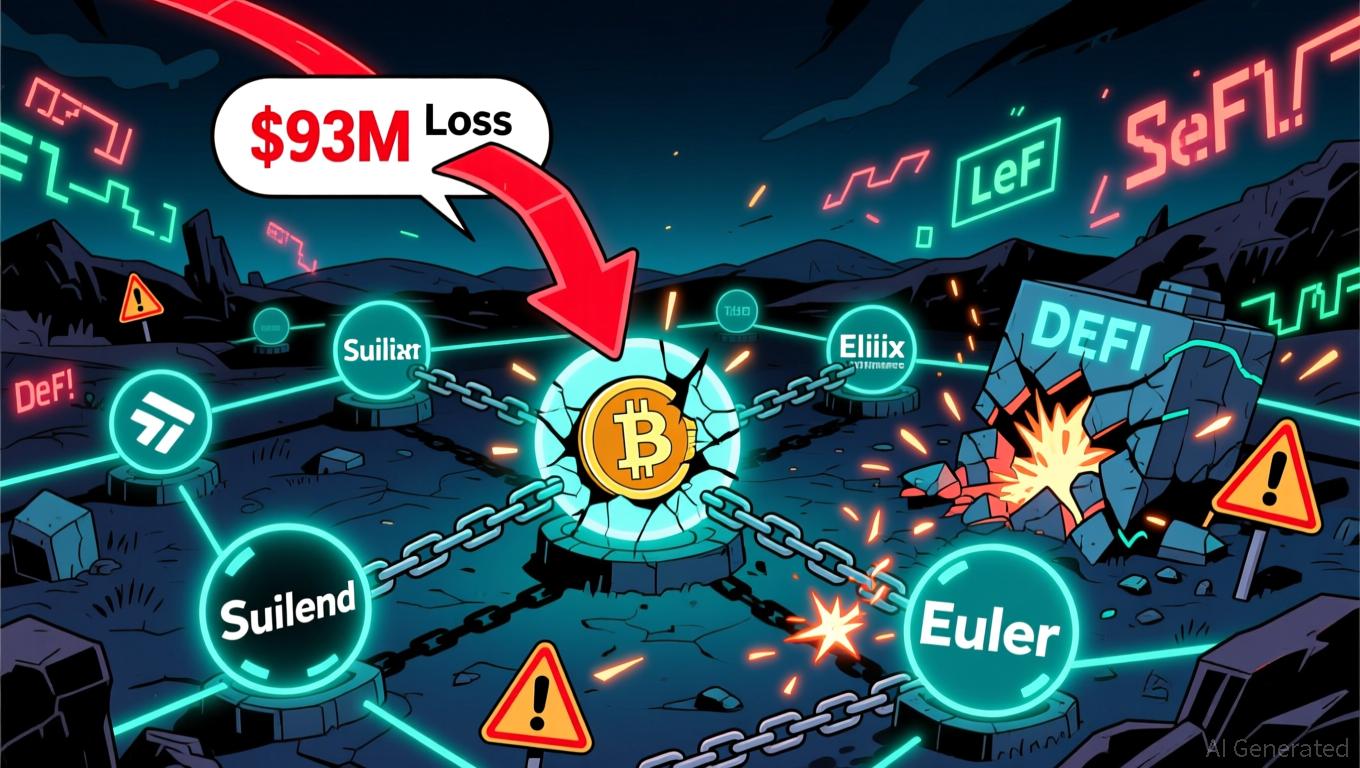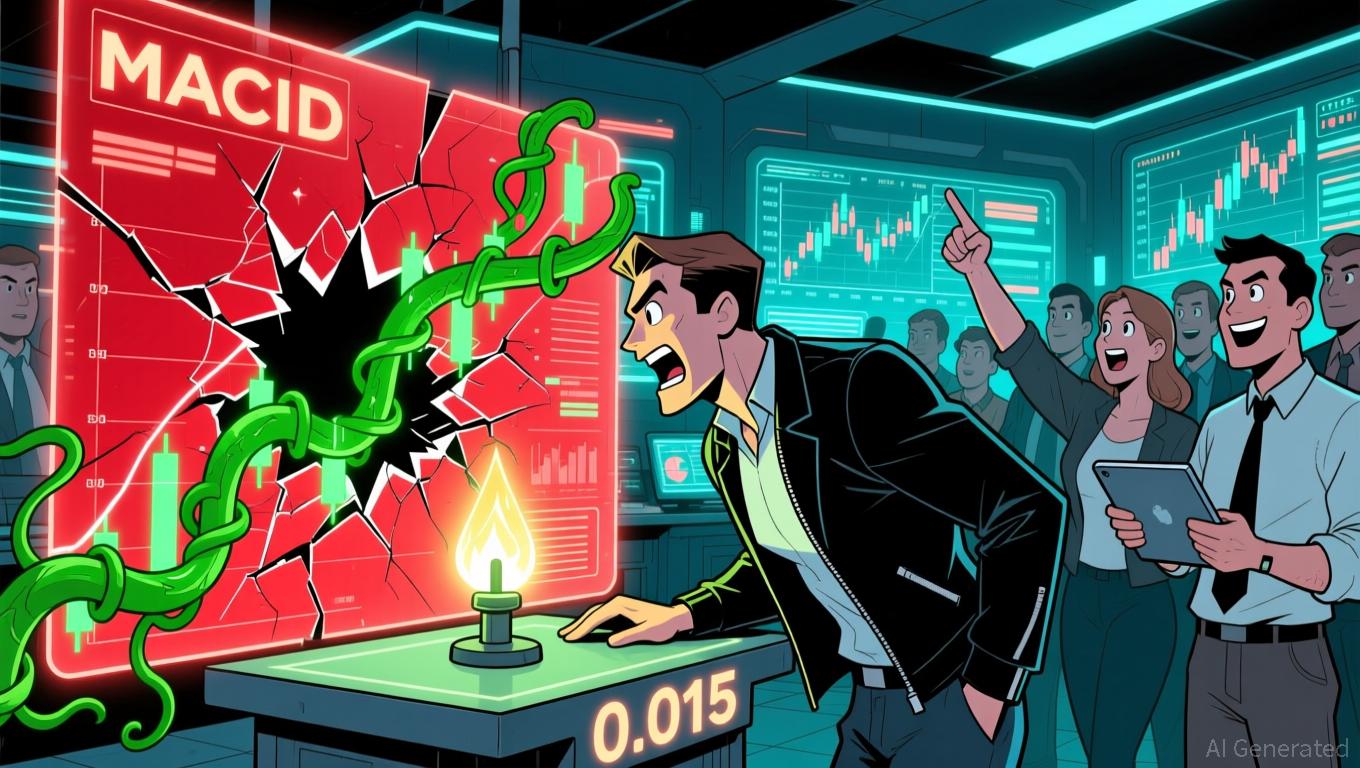Stablecoin Staking Boom Prompts Hourglass to Halt Operations, Emphasizing Safety Above Rapid Growth
- Hourglass paused Phase 2 stablecoin deposits after $650M in deposits exceeded the $500M cap, prioritizing security amid high demand. - The platform restricted eligibility to KYC-compliant deposits, excluding Etherscan/programmatic transactions to mitigate regulatory risks. - The pause reflects growing industry focus on compliance following 2022's UST collapse, though reactions remain mixed over delayed rewards. - Hourglass aims to strengthen its tokenomics and market position through controlled scaling,
Hourglass, a platform specializing in stablecoin staking, has temporarily halted new deposits for its Phase 2 event after participation levels far exceeded projections. On November 6, blockchain data indicated that deposits for this phase had surpassed $650 million, well above the original $500 million limit, as reported by a

LookOnChain noted that the minimum deposit for Phase 2 is $100,000, and the deposit period has been extended by at least an hour to accommodate the surge in interest. This extension demonstrates the strong demand from both institutional and individual investors. Market observers believe the robust participation in Phase 2 reflects growing trust in Hourglass’s token model and its capacity to deliver returns even in a low-yield environment.
Hourglass’s move to suspend new deposits is consistent with a wider industry shift toward prioritizing safety and openness in the stablecoin sector. The decision comes as regulators increase scrutiny of stablecoins, especially after the downfall of Terra’s UST in 2022. By restricting eligible deposit methods and stressing the importance of KYC (Know Your Customer) procedures, Hourglass seeks to reduce risks tied to unlawful activities and market instability.
The crypto community has responded with mixed opinions to these measures. Some investors have welcomed the platform’s transparency and focus on user protection, while others are concerned about possible delays in receiving rewards. Although Hourglass has not specified when deposits will resume, it has assured users that all funds are safe and fully supported by reserves, according to the report.
This forms a key part of Hourglass’s broader plan to grow its ecosystem and strengthen its role in the stablecoin staking arena. With deposits exceeding $650 million, the platform is set to allocate a substantial share of its token supply, which could boost liquidity and user adoption. Nonetheless, the pause also underscores the complexities of expanding DeFi platforms while adhering to regulatory standards.
Disclaimer: The content of this article solely reflects the author's opinion and does not represent the platform in any capacity. This article is not intended to serve as a reference for making investment decisions.
You may also like
Bitcoin News Today: Is Bitcoin’s Recent Sell-Off Driven by Corporate Debt Reduction or Market Manipulation?
- Bitcoin fell below $100,000 on Nov. 4, 2025, with $1.3B in liquidations as whales and firms like Sequans sold BTC to reduce debt. - Analysts argue sellers may amplify bearish narratives via social media to profit from lower prices, while corporate treasury strategies face risks amid falling prices. - On-chain data shows moderate unrealized losses (3.1% stress level), suggesting potential stabilization, though some warn a $56,000 cascade could follow a $100,000 break. - Diverging strategies emerge: Americ

"Study Reveals 25% of Polymarket's Trading Volume is Artificial Due to Ghost Trades"
- Columbia University study reveals 25% of Polymarket's trading volume may involve wash trading, where users self-trade to inflate activity. - Sports and election markets showed highest manipulation rates (45% and 17% fake volume), peaking at 95% in election markets in March 2025. - Platform's lack of transaction fees and pseudonymous wallets enabled manipulation, despite CFTC regulatory actions since 2022. - Researchers urge Polymarket to adopt their detection methods to exclude fraudulent wallets and res

DeFi's Inherent Risks Prompt a Governance Overhaul
- Curve community proposes halting CRV token emissions to Elixir pools amid deUSD collapse linked to Stream Finance's $93M loss. - Elixir's synthetic stablecoin lost 98% value after 65% collateral tied to Stream's devalued xUSD, triggering liquidity freezes and legal disputes. - DeFi platforms like Suilend and Euler forced debt repayments while Stream's 90% deUSD control blocks resolution, exposing systemic governance flaws. - Industry warns interconnected stablecoins and opaque fund managers pose $3.1B an

PENGU's $0.015 Level Ignites Recovery Optimism Despite Persistent Derivatives Short Pressure
- Pudgy Penguins (PENGU) token fell 22% to $0.01589 amid altcoin weakness but shows potential rebound near $0.015 support level via TD Sequential buy signals. - Derivatives data reveals $7.68M in short positions at $0.01579, yet improving volume delta (-$64M) and MACD green signals suggest waning bearish momentum. - Long-term fundamentals remain bearish with CoinCodex predicting 25% decline to $0.01193 by December 2025, while TD Bank's branch closures highlight shifting financial sector dynamics. - Institu
